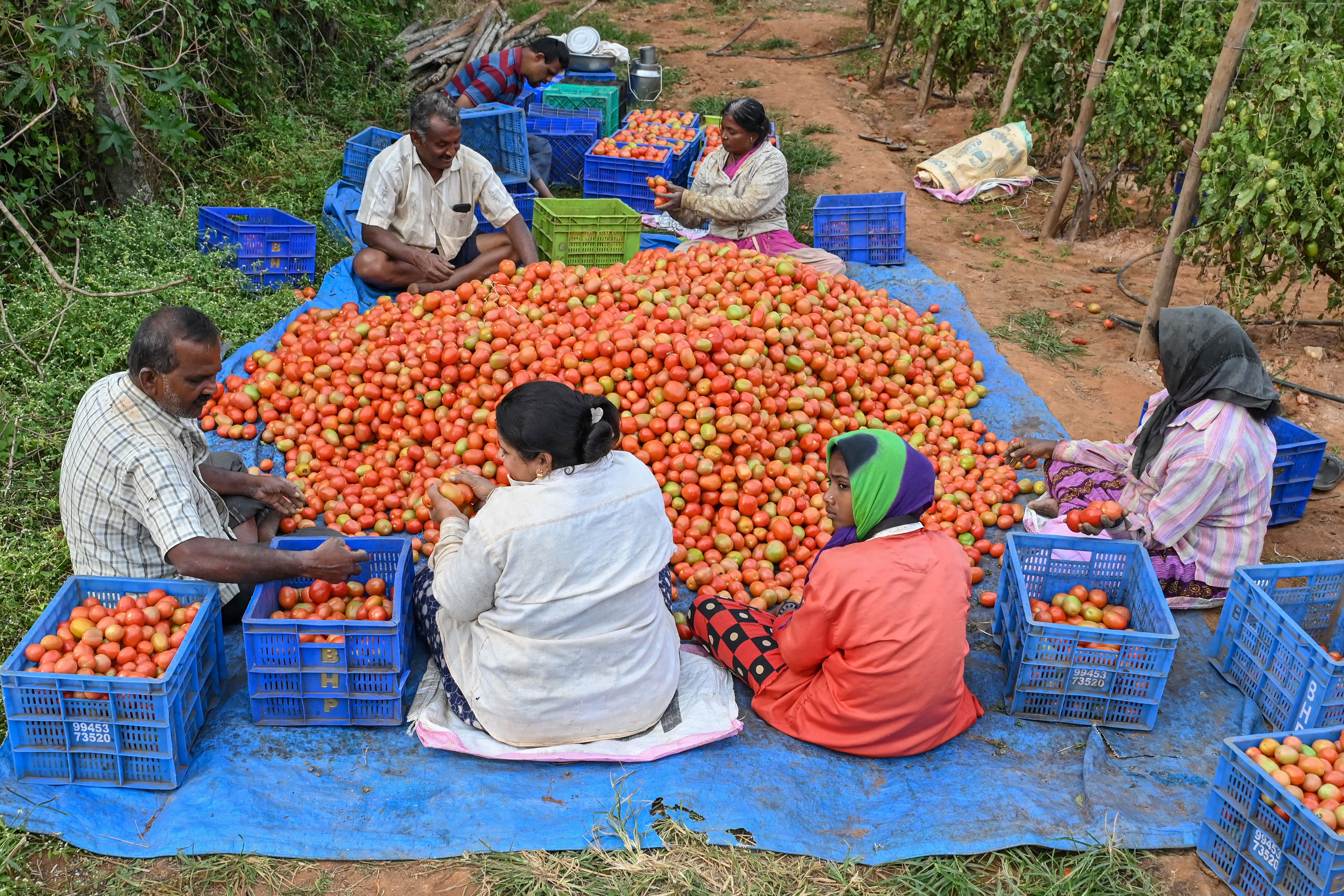Indians are now travelling to neighbouring country to buy tomatoes after price skyrockets
Tomato prices have surged four times in the country as it faces shortage

Your support helps us to tell the story
From reproductive rights to climate change to Big Tech, The Independent is on the ground when the story is developing. Whether it's investigating the financials of Elon Musk's pro-Trump PAC or producing our latest documentary, 'The A Word', which shines a light on the American women fighting for reproductive rights, we know how important it is to parse out the facts from the messaging.
At such a critical moment in US history, we need reporters on the ground. Your donation allows us to keep sending journalists to speak to both sides of the story.
The Independent is trusted by Americans across the entire political spectrum. And unlike many other quality news outlets, we choose not to lock Americans out of our reporting and analysis with paywalls. We believe quality journalism should be available to everyone, paid for by those who can afford it.
Your support makes all the difference.As tomato prices surge in India, residents living in the border Himalayan state of Uttarakhand have started to cross over to Nepal to purchase them at significantly lower prices.
The trend has gained momentum in the districts of Dharchula and Banbasa, where individuals are crossing the border to take advantage of the price difference.
While the prices in India have skyrocketed from Rs 25 (£0.24) to more than five Rs 120 (£1.12) per kg in India, they are available for Nepali Rs 100 to Rs 110 in Nepal, roughly translating to around Rs 70-75 (£0.65 - £0.70) per kg in Indian rupees, reported The Times of India.
According to CNBC, India is observing a shortage of the fruit due to flooding in major tomato producing states like Andhra Pradesh, Maharashtra. “Due to excess rainfall in these states, tomato (crops have) been highly affected… A large part of the tomato crop has been destroyed due to rains and flood,” India’s National Institute of Biotic Stresses Management, a council dedicated to agricultural research, told the outlet.
The world’s second largest tomato producer after China, India has suffered a series of blows to the crop this year from erratic weather events, adding to the shortage of the staple Indian commodity. The biggest impact appears to have come from cyclone Biparjoy in Gujarat last month, which not only distrupted the region’s production but also its key trade routes through western India’s Nashik, Pune and Bengaluru.
Torrential downpours this week have unleashed havoc in northern India in what officials have described as the worst monsoon the country has experienced in decades.
Tomatoes have a short shelf-life compared to other fruits and vegetables, senior trader Dalvinder Singh Bhalla in Asia’s largest wholesale fruits and vegetable market Azadpur Mandi, Delhi, earlier told The Independent.
Due to the surge in prices, about seven per cent Indians have stopped buying tomatoes, according to a survey by social media platform LocalCircles, reported Forbes India. In its analysis of responses from over 21,000 households, about 75 per cent admitted to significantly cutting down their tomato consumption.
The influx of Indian consumers seeking affordable tomatoes, has also brought profit for vendors in Nepal who about three weeks ago dumped truckloads of their produce on the roadside of Kalimati Fruit and Vegetable market to express anger against the low prices.
Farmers dumped about 90 tonnes of tomatoes on the street, reported Nepal’s Kathmandu Post, citing sources, with some blaming the import of tomatoes from India as reason behind the low prices.
The Nepalese government has actively encouraged farmers to switch from grains to vegetables in recent years, a move that has resulted in increased cultivation of seasonal and non-seasonal vegetables, including tomatoes, reported The Times of India.





Join our commenting forum
Join thought-provoking conversations, follow other Independent readers and see their replies
Comments